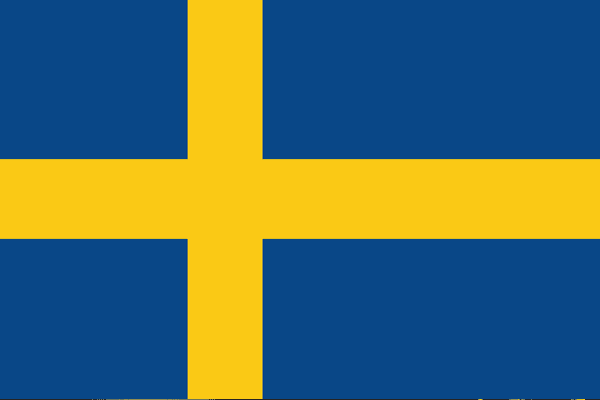Could Sweden be the Next European iGaming Hotspot?
The online gaming landscape’s shifting sands are constantly revealing new and up-and-coming gaming environments. There’s nowhere this is clearer than in Europe. With its 44 countries and diverse cultures, it’s bound to unearth a new gem. With that said, Sweden looks to be staking its claim as the new European iGaming king. In a year where the online gaming economy saw a boom in many territories, the country boasted an impressive record. Could that mean that the established order is being challenged?

In 2022, gambling revenue grew by 5%. This includes all forms of gambling. However, the online sphere grew by 6% in an even more impressive move. This means that the total revenue for gambling in Sweden is a whopping $2.6 billion. Those are the sort of figures that will have some industries shooting envious glances. They also come with a surprising caveat. There was a serious fall in one aspect of the industry. Restaurant casinos saw revenue drops of over 10%, meaning that the growth we’re seeing is being achieved by driving against falling revenues in other areas. That shows the real successes in reaching such heights. But why are the revenues rising?
A Return to Reality or a Casino Boom?
As impressive as the numbers are, there is perhaps something of a reason for them. During the pandemic, Swedish authorities put in place temporary measures to curb the effects of gambling in the country. As such, since those measures were lifted in 2021, growth has been somewhat steady. Some leading figures point to this growth as being a return to normality, rather than a rocket to the stratosphere. In fact, looking at the last full year before the pandemic, the industry raked an almost identical $2.62 billion. Not only that, 2019 was actually seen as being a tough year. Its figures represented a year-on-year drop of around 1%. But where does Sweden’s latest gaming revenues stand?
In the UK, a country seen as established in the gambling market, the experience is reminiscent of that in Sweden. While the 2021-22 financial figures reveal significant growth against the previous financial year, when compared with the last financial year pre-pandemic, there’s a drop. 21-22 saw a Gross Gambling Yield of £14.08 billion and 19-20 was £14.19 billion. That final year was also a drop on the record figures seen previously. It would appear, then, that there is precedent for what Sweden is experiencing. As the pandemic hit physical venues where it hurts, the rise is generated more by a return to normal than any increased demand. That’s not to say that there’s no cause for celebration.
Sweden’s Gain Could be Another’s Loss
As established, the UK and Sweden seem to be pegged together in displaying similar results in the market. And more than that, they’re linked even more closely by the industry. Many UK and Ireland-based companies operate Swedish arms of their sportsbooks and online casinos. This may seem inconsequential at first but looking at the UK landscape reveals more. The country is currently experiencing a dilemma in its iGaming and casino culture. Recent years have seen pushes for stricter regulation. Moves are afoot to implement strict anti-money laundering and player protection initiatives. New proof of funds regulations has been particularly unpopular. While these may be imposed with the best intentions, that’s not how the gambling industry’s leaders see it. They see it, instead, as an infringement on their business and a move to curb gambling – specifically sports betting – in the country.
If these moves continue to progress, it wouldn’t be surprising to see a shrinking of the UK operations of some of these pan-European businesses. That could see more stock being placed in the performance of markets like Sweden, where it’s perhaps felt that there could be a more direct approach. Currently, much of the marketing follows an English-first strategy. That is, all their resources begin by being created for an English-speaking market. They are then translated and localized. However, should some of these companies pull back from the UK market, it could spell success for their other territories. If we see this sort of seismic shift, it could be a great time to be in the Swedish market.
It must be said, too, that Sweden itself has implemented some strict regulations. Betfair, for example, has fallen foul of its financial regulations. However, the mood in the country is more positive than the UK, where the sea change appears to be largely unpopular. Maybe we could have a new hotspot after all.
